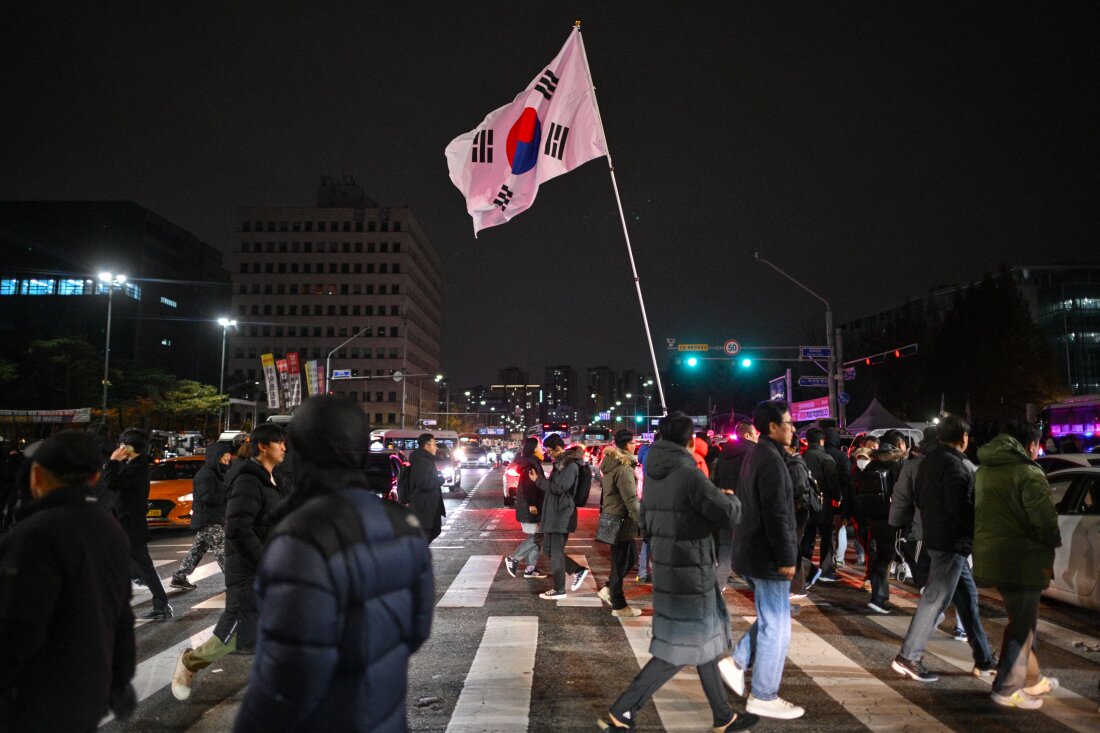South Korea in Turmoil: Investigation Launched into President Yoon Over Martial Law Attempt
SEOUL – South Korea’s political landscape has been thrown into upheaval as prosecutors announced an investigation into President Yoon Suk Yeol and two of his key ministers over their roles in an unprecedented attempt to impose martial law. The dramatic development follows the resignation of Defense Minister Kim Yong-hyun, who faces a travel ban amid mounting scrutiny.
The martial law, declared briefly on December 3, was justified by President Yoon as a response to “anti-state forces” and obstructive political adversaries. However, the decision was met with fierce resistance from the opposition-controlled Parliament, which swiftly voted against it, compelling Yoon to retract the order within six hours.
Political Fallout and Public Outrage
This rare invocation of martial law has plunged South Korea into a constitutional crisis, with critics accusing the president of undermining democratic norms. Mr. Kim Yong-hyun’s resignation has not quelled the outrage, as public protests and political opposition intensify. Interior Minister Lee Sang-min, who played a supporting role in the declaration, is also under investigation, though he currently faces no travel restrictions.
The ruling People Power Party (PPP) is struggling to contain the fallout. On December 5, PPP leader Han Dong-hoon publicly urged President Yoon to leave the party, stating, “We are not defending the president’s unconstitutional martial law.” His remarks reflect a widening rift within the conservative party, which has been accused of failing to hold Yoon accountable.
Opposition Pushes for Impeachment
Meanwhile, the opposition Democratic Party is seizing the moment to call for Yoon’s impeachment. “The president’s actions have gravely undermined our democracy,” opposition leaders argued in Parliament. A formal impeachment motion is expected to be filed soon, with a vote anticipated in the coming days.
Despite the opposition’s momentum, the PPP has vowed to stand firmly against impeachment. In a televised address on December 5, PPP floor leader Choo Kyung-ho declared, “All 108 lawmakers of the People Power Party will stay united to reject the president’s impeachment.”
The President’s Position
President Yoon has maintained a low profile since retracting martial law, issuing no public statements about the unfolding crisis. Analysts suggest he may be strategizing a response to salvage his presidency, though options appear increasingly limited as public sentiment sours.
Political experts warn that the investigation and potential impeachment could have long-lasting implications for South Korea’s democracy. “This is an extraordinary moment in Korean history,” said Dr. Kang Hyun-woo, a political science professor. “The martial law declaration and its aftermath could redefine the balance of power between the executive and legislative branches.”
What’s Next?
As South Korea braces for a volatile political showdown, the stakes are high. The impeachment process, if initiated, would require a two-thirds majority in Parliament to pass, followed by a review by the Constitutional Court. For now, all eyes are on the prosecutors’ investigation and the rapidly shifting political alliances that will shape the country’s immediate future.
The next few weeks are likely to determine not only the fate of President Yoon Suk Yeol but also the stability of South Korea’s democratic institutions.


Comments
Post a Comment